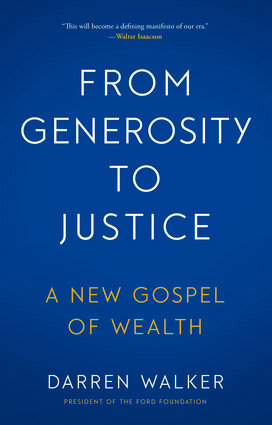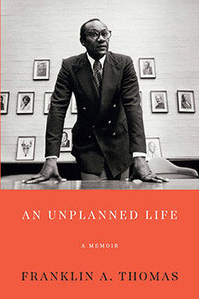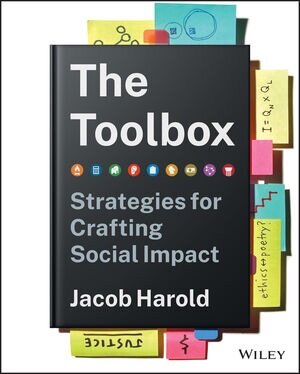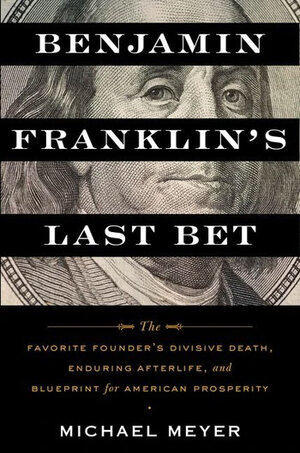From Generosity to Justice: A New Gospel of Wealth
Darren Walker wants philanthropy to change. It needs to move beyond the idea that the giving of time, talent, and treasure—of being generous—is all there is. While being charitable is an essential part of being human, charity alone does not solve hunger, end poverty, cure disease, or save the planet.
In From Generosity to Justice: A New Gospel of Wealth, the Ford Foundation president contends that for philanthropy to be effective, the sector needs to dig deeper, interrogate itself, understand the source of its wealth and power, truly engage the communities it seeks to help, and work to undo the anti-democratic impulses that have historically driven American culture, business, and philanthropy. For Walker, philanthropy needs to move toward justice; that is, to address the root causes of our social inequities, and in so doing, dismantle the systems that create and sustain them.
In Walker’s view, generosity falls short. As Walker shows in his new preface updating this book—first published in 2019—with recent developments including the COVID-19 pandemic, one need only look at the unprecedented funding available at the height of the health crisis as a case in point. While spending temporarily cut the child poverty rate in New York City in half—and there is no doubt that this funding did a great deal of good—no one now thinks that the problem of child poverty is solved or that its underlining social, cultural, and economic causes have been eliminated. This is not merely a sermon about teaching a man to fish, although that is part of it, and Walker is quick to flag his good fortune as a boy to have attended Head Start, a school-readiness program that emerged from, of all places, the Ford Foundation.
Walker, quoting philanthropist Alice Walton, embraces the notion that “[c]harity is an act. Justice is an outcome.” He sees philanthropy on a spectrum: supporting a food bank is charity, advocating for a living wage is a deeper engagement, but “dismantling the systems of poverty and oppression that prevent people from being able to afford healthy food in the first place is delivering justice.” That spectrum exists across the myriad challenges we encounter, be it in the arts, where Walker asks us to imagine a world where society values creativity as much as money, or in prisons, where prejudice against former inmates in work and housing is annihilated when we do away with a racist system of incarceration.
Walker, quoting philanthropist Alice Walton, embraces the notion that “[c]harity is an act. Justice is an outcome.” He sees philanthropy on a spectrum: supporting a food bank is charity, advocating for a living wage is a deeper engagement, but “dismantling the systems of poverty and oppression that prevent people from being able to afford healthy food in the first place is delivering justice.”
It is no small irony that when we think about American philanthropy, its roots, its transformations, its future, we inevitably return to Andrew Carnegie and his 1899 essay “The Gospel of Wealth.” Born of modest means in Scotland, he became one the wealthiest men of the Gilded Age, the living embodiment of a Horatio Alger story. In the final decades of his life, Carnegie set about giving away his fortune and, in so doing, created the foundations of 20th- and now 21st-century philanthropy. In Carnegie’s time, Walker points out, 4,000 American families had as much wealth as the other 11.6 million. Today, 26 individuals control as much wealth as the poorest 3.8 billion around the globe. Then as now, the rich and powerful believed that they knew what was best for those who were not, that their vast wealth was the result of a meritocratic society rewarding their talent, skill, and intelligence.
But Walker reminds us that capitalism has never been about pulling yourself up by the bootstraps; it was and is a system built on privilege that leverages generational advantage to create ever greater disparities in wealth and opportunity. Walker is no anti-capitalist; he simply believes that “capitalism does not need to be a winner-take-all system.”
“There’s a difference,” he notes, “between inclusive capitalism and capitalism run amok. Inclusive capitalism is a system that provides fair wages and affordable housing, and a grid of common goods such as affordable education and clean air and water—it strives for an environment of meritocracy, not aristocracy. The more level our playing field, the more we can use capitalism’s undeniable productive power to unlock better ideas for humankind.”
For Walker the systems and laws that allow foundations to exist are the same as those that contribute to the seemingly intractable inequality we see today. And precisely because large foundations like Ford are the direct beneficiaries of that system, it is incumbent on them to undo the knot of inequality and invest in changing the system. And at Ford he has been walking the walk; refocusing the foundation to address global inequality in 2015, redeploying the foundation’s endowment to mission-related investments in 2017 and issuing $1 billion in “social bonds” to accelerate investments in community organizations during the pandemic.
For Walker the systems and laws that allow foundations to exist are the same as those that contribute to the seemingly intractable inequality we see today. And precisely because large foundations like Ford are the direct beneficiaries of that system, it is incumbent on them to undo the knot of inequality and invest in changing the system.
From Generosity to Justice is not simply a hammer-to-nail exhortation to fight the rapaciousness of our own gilded age, but rather a personal act of both logical and moral suasion with the reader. In brief chapters, Walker explores what might be called the “reeducation of a philanthropist,” engaging with ideas that include understanding the many forms of privilege and how it affects decision making; coming to terms with knowing what you don’t know and how to fill that gap; and creating access for and elevating the voices of those most affected. With each lesson, Walker then pivots to a set of engrossing conversations with several of his peers, including Andrew W. Mellon Foundation president Elizabeth Alexander, Merck president Kenneth Frazier, CHANGE Philanthropy national director Carly Hare, National Domestic Workers Alliance president Ai-jen Poo, and Emerson Collective president and Ford Foundation trustee Laurene Powell Jobs. In this way, Walker shows that all this is not mere talk, but can—and is—being put into action.
From Generosity to Justice was first published as an extension of a December 2015 New York Times opinion piece, “Why Giving Back Isn’t Enough.” The book’s new preface updates Walker’s vision again by addressing the COVID-19 pandemic and the reckoning with racial injustice prompted by the murder of George Floyd. It also includes a broad list of “converging crises,” among them the rise of anti-democratic forces in the United States and autocracy around the world and the grave peril of a changing climate—all of which prove many of Walker’s fundamental assertions. “If we only do what we’ve always done,” Walker warns, “the trauma of these last few years will be only the beginning.”
Daniel X Matz is contributing editor at Philanthropy News Digest.










